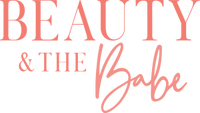Safe Skincare During Pregnancy: What You Need to Know

As an expectant mother, maintaining healthy skin is crucial, but it’s equally important to ensure that your skincare routine is safe for both you and your baby. While you're mindful of dietary restrictions like avoiding alcohol and sushi and limiting your coffee intake, understanding which skincare ingredients are safe during pregnancy is just as essential. Let's explore what you need to know to keep your skin glowing safely.
Retinol or Retinoids
Retinol during pregnancy is a topic of concern. Derived from Vitamin A, retinol and retinoids such as Accutane and Retin-A are commonly used for severe acne treatment. Early reports suggested a link to birth defects, but larger studies have not found an increased risk of major malformations. Despite this, their use is controversial, and it's advisable to avoid retinoids during pregnancy.
Hydroquinone
Hydroquinone during pregnancy is often used for skin whitening. It has a high absorption rate of 35-45% when applied topically, making it best to minimize its use during pregnancy to ensure safety for pregnancy skincare.
Rogaine (Minoxidil)
Minoxidil during pregnancy promotes hair growth, but its safety isn’t well-established. Case reports have raised concerns about birth defects, so it’s generally recommended to avoid it during pregnancy for safe skincare.
Benzoyl Peroxide
Benzoyl peroxide during pregnancy is safe for treating acne and skin infections. It’s minimally absorbed by the skin, which is 5% and converted into benign byproducts (benzoic acid), making it a suitable choice for pregnancy skincare.
Alpha Hydroxy Acids (AHAs) and Beta Hydroxy Acids (BHAs)
AHAs during pregnancy and BHAs during pregnancy are safe for maintaining skin health and commonly used to treat acne. AHAs like lactic acid and glycolic acid, and BHAs like salicylic acid, are generally considered safe in low concentrations. It’s recommended to use products containing AHA < 20% and salicylic acid < 2% during pregnancy.
Sunscreen
Sunscreen during pregnancy is essential for protecting your skin. Chemical sunscreen ingredients (avobenzone, oxybenzone, octocrylene, homosalate, octisalate, and octinoxate) can be absorbed into the bloodstream that surpass FDA thresholds for safety. However, much is still unknown so it’s advisable to opt for mineral sunscreens containing zinc oxide and titanium dioxide for safe pregnancy skincare.
Self-Tanner
Self-tanner during pregnancy is a safe way to achieve a sun-kissed glow. Dihydroxyacetone, which is a color additive that produces an artificial tan. This active ingredient interacts with amino acids in the top layer of skin with minimal absorption about 0.5%, making it safe for use during pregnancy.
Insect Repellent with DEET
DEET during pregnancy is safe when used in concentrations of 20-30% during the second and third trimesters to prevent insect bites.
Conclusion
Understanding safe skincare during pregnancy is crucial for expectant mothers. By choosing products with safe ingredients and consulting healthcare providers when uncertain, you can maintain your beauty routine while prioritizing your baby’s health. Always make informed decisions and prioritize pregnancy-safe skincare to ensure both you and your baby stay healthy and happy.
Maintaining a healthy skincare routine during pregnancy is not only beneficial for your appearance, but also contributes to your overall well-being. By knowing what skincare is safe in pregnancy, you can confidently navigate this special time in your life.


Leave a comment